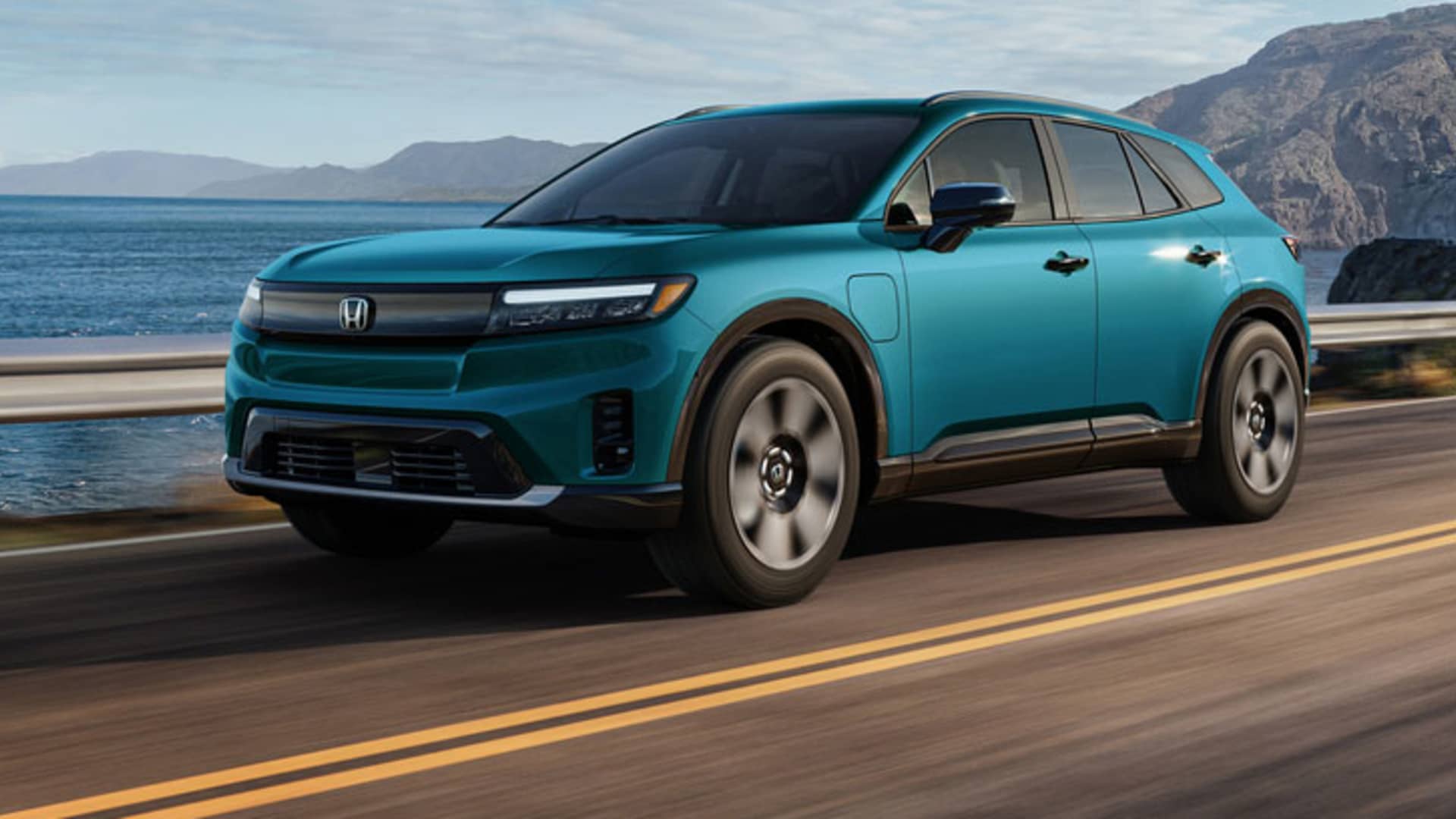DETROIT – General Motors and Honda Motor have canceled plans to jointly develop affordable electric vehicles as they face slower-than-expected demand and changing market conditions.
The unwinding of the tie-up roughly a year and a half after it was announced is the latest in a string of decisions by automakers, specifically GM, to scale back or cancel previously announced EV plans.
The partnership was expected to use GM’s next-generation Ultium battery technology to produce millions of EVs that cost less than $30,000 for global markets beginning in 2027. They were set to include popular compact crossover vehicles.
Since the automakers first announced the partnership, the outlook for EVs has dimmed due to higher costs, lack of infrastructure and slower-than-expected consumer demand.
“After extensive studies and analysis, we have come to a mutual decision to discontinue the program. Each company remains committed to affordability in the EV market,” GM spokesman Darryll Harrison said in an email. “Each company remains committed to affordability in the EV market.”
Harrison said the cancellation of the program “is not connected with our plans to introduce a next generation Bolt.” However, GM CEO Mary Barra referenced the Bolt as a better option when discussing the cancellation of a $5 billion capital commitment for entry-level EVs during an earnings call Tuesday with investors.
“Our prior portfolio plans included several newly designed vehicles in the entry-level segments and a capital commitment of $5 billion over the next several years,” she said. “However, by leveraging the best attributes of today’s Bolt EUV as well as Ultium … we will deliver an even better driving, charging and ownership experience with a vehicle we know customers love.”
Current Chevrolet Bolt models start under $30,000 without any EV incentives.
Harrison said other partnerships between the companies, including a deal for GM to build the 2024 Honda Prologue EV, continue. The companies also have partnerships around hydrogen fuel cells and autonomous vehicles.
The companies confirmed they would end the affordable EV effort after GM scaled back some near-term EV targets, announced delays in production of at least three upcoming EVs and disclosed additional details about postponing the build-out of a second all-electric truck plant in Michigan until late 2025.
“We’re really focusing on making sure that we’re driving toward demand targets,” GM CFO Paul Jacobson said during a media briefing for the automaker’s third-quarter earnings. “We’re balancing production to demand.”
Honda CEO Toshihiro Mibe told Bloomberg Television on Tuesday that the company determined the affordable EV program “would be difficult as a business.”
Honda did not immediately respond for a request for comment on the cancellation of the plans.

oral ivermectin cost – buy carbamazepine 200mg without prescription buy carbamazepine
buy isotretinoin without prescription – order zyvox 600mg generic buy zyvox
buy amoxil medication – purchase amoxicillin buy ipratropium
generic azithromycin – order tinidazole generic buy nebivolol 20mg sale
prednisolone 20mg cheap – azithromycin 500mg cheap prometrium 100mg uk
furosemide 40mg tablet – how to get lasix without a prescription where to buy betamethasone without a prescription
amoxiclav without prescription – nizoral 200 mg cost order duloxetine generic
buy generic semaglutide – oral levitra order cyproheptadine 4mg pill
tizanidine 2mg uk – purchase tizanidine online buy hydrochlorothiazide cheap
tadalafil 40mg ca – cheap viagra order viagra sale
brand omeprazole – atenolol online order atenolol cost
methylprednisolone pill – aristocort 10mg pill triamcinolone 4mg oral
cheap clarinex 5mg – buy desloratadine 5mg for sale priligy 60mg cost
generic misoprostol – purchase diltiazem without prescription diltiazem 180mg uk
oral domperidone 10mg – cheap sumycin order flexeril 15mg
buy generic motilium for sale – sumycin without prescription cyclobenzaprine for sale online
order generic inderal 20mg – methotrexate 5mg sale methotrexate 2.5mg for sale
coumadin sale – maxolon canada cozaar 50mg over the counter
order esomeprazole 20mg generic – buy sumatriptan 25mg generic order sumatriptan generic
meloxicam 15mg ca – purchase mobic generic order generic flomax 0.2mg
ondansetron 8mg generic – order aldactone 25mg online simvastatin for sale online
valtrex 500mg canada – buy diflucan 100mg generic diflucan online buy
buy modafinil 200mg without prescription buy provigil sale order provigil 100mg pill buy generic modafinil for sale order provigil 200mg without prescription provigil 200mg cheap oral provigil
Thanks on putting this up. It’s well done.
With thanks. Loads of expertise!
order zithromax 500mg sale – cheap tindamax 300mg buy generic flagyl online
oral semaglutide – buy periactin 4 mg generic purchase cyproheptadine